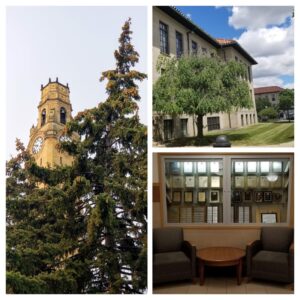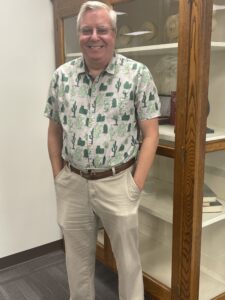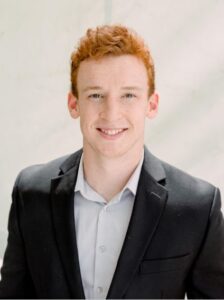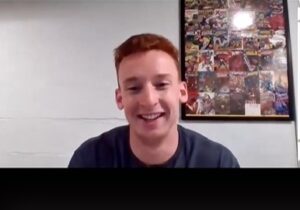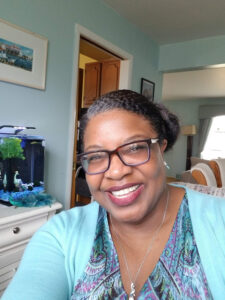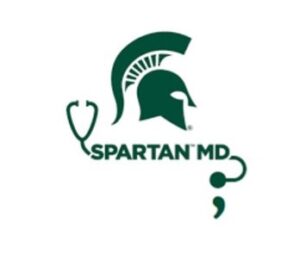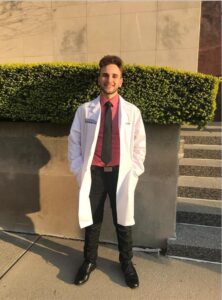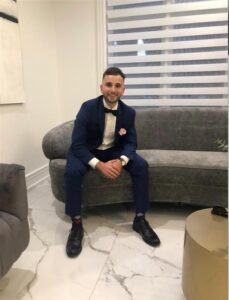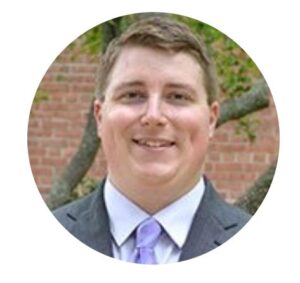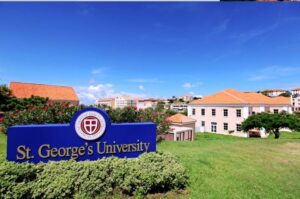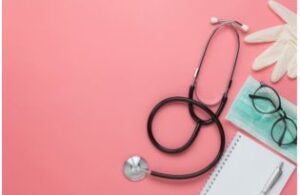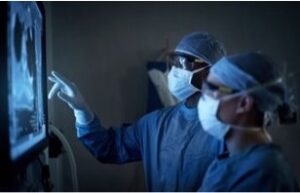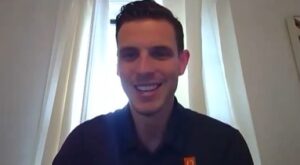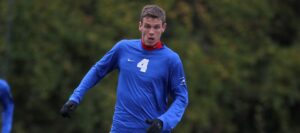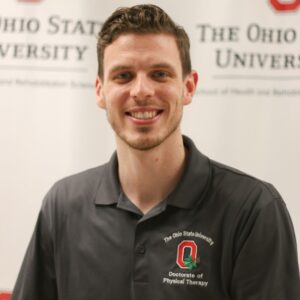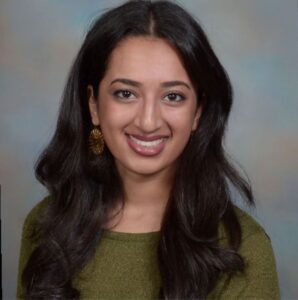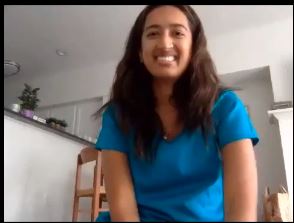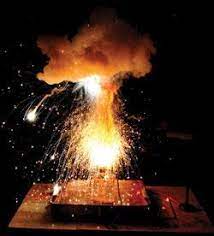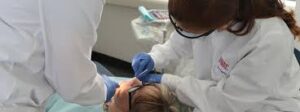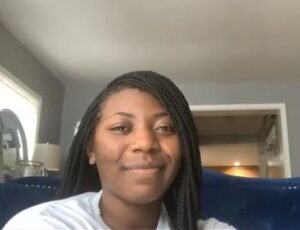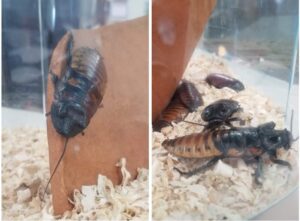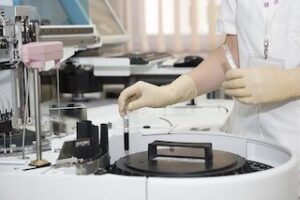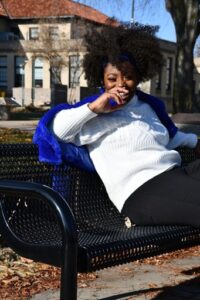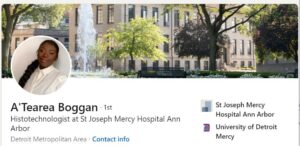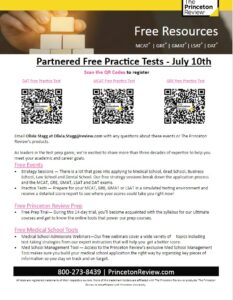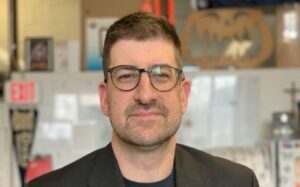
By the time I finished elementary school, I’ll tell you right now, I knew I wanted to teach!
Current Chemistry and Biochemistry Department Chair and Professor Dr. Matthew Mio shares memories of being a Chemistry Major at the University of Detroit Mercy as well as success of the Chemistry Club. Dr. Mio also reflects on how he became the Moderator of one of the longest running radio show/podcasts in the U.S.!
- Dr. Mio you are not only in an exciting career as a successful scientist, but you are part of making new scientists here at your alma mater, the University of Detroit Mercy. Looking back at your time on campus as an undergraduate science student please share a fond memory.
There was something about taking some of the knowledge we had learned from class and using it to do something fun. We felt like our lives revolved around it. We were in Chem Club…We were doing chemistry. It kind of was like just a big family.
I was walking to the chemistry building, these two friends of mine were leaving the chemistry building…and I’m like you guys ok? … As I’m looking over my shoulder I see this friend of mine’s backpack is smoking. It’s actually giving off quite a bit of smoke and the bottom line was they had borrowed some of the department’s dry ice and I believe I was slowing them down from whatever interesting buffoonery they were going to get involved in. But the guys backpack as he’s walking is literally smoking…I’ve never forgotten that.
2. You mentor many Titans in and outside of the classroom, but could you share your secret to this amazing Chem Club?
Chem Club is something I’m really proud of…I was president if you can believe it in 1995… Chem Club at this point in Detroit Mercy’s history, for better for worse… (is) Detroit Mercy’s oldest student org. We were founded in 1938
You kind of need to scratch two itches when you get involved in a student org. There’s the pre professional stuff and then the social stuff. There’s a lot of orgs that are only one or the other. I think that one of the things… that makes Chem Club unique is that it’s both…Were just as easily going to get together and have hot cocoa with the professor as we are going to bring in a resume workshop from the American Chemical Society or an alumni speaker…
The American Chemical Society also expects us to do what I can only describe as a very lengthy annual report every year to maintain our charter… We’re very proud to say for the last 17 years, our Chem Club has been cited as what’s called Excellent, which is only the top 5% in the entire United States. They send us a plaque every year and we put them up in the trophy case in the main lobby and it makes you feel you know important. It makes you feel like you’re a part of something and what more would we want?
There’s no fee to join and you just show up and you try to absorb information and get to know people
3. Could you tell us about your journey from a skill in Chemistry to a professor in Chemistry?
My dad always had an itch for science and he wasn’t really able to go into it. So he gets his degree, has a son. I’m his oldest and he kind of pushed a lot of that love for science on me.
Not only did I get the love of science… but I got a love of learning because by the time I finished elementary school, I’ll tell you right now, I knew I wanted to teach.
By the time I got to graduate school, I knew I was not cut out for the big time, multi $1,000,000 grants…I just wanted to go to a small school which was primarily focused on teaching…and that has been very satisfying for me.

4. What is this “Ask the Professor” show?
So when I was a student back in the 90s, Ask the Professor had been around for a while…it started in the 50s by a professor here at the University of Detroit whose name is Bill Rabie…It was really a show about getting a bunch of Profs together in a circle and people would send in questions and these really smart people will respond.
We get to the 70s, 80s and 90s and I’m a student here and the panel was moderated, (we say the leader) by Ed Dewindt, who is a longtime history Prof here…(later) it was taken over by another history Professor, Kathy Bush, who was also the Associate Dean of Liberal Arts…..I remember I never had Kathy Bush for class as a student, and I’m a professor now, you know can I be on the panel? She’s like we’re recording this Friday at 3:30, be there! (She) Just welcomed me in.
(After) she passed, a lot of people were wondering… what was going to happen to the Podcast? I had no idea that Dr. Vivian who was chair of Communication Studies…wanted me to take over…and I’ve been doing that for the last 10 years.
We definitely morphed from 60 years ago, doing things more like a radio show. Now it’s basically a podcast, and anybody can listen if they just search for Ask The Professor and there is evidence that it’s one of the longest running you know radio show podcasts in the history of the United States.
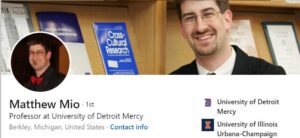
Learn More about Dr. Matt Mio’s area of Teaching and Expertise Here!
Dr. Matt Mio Ted Talk: Learning How to Learn

